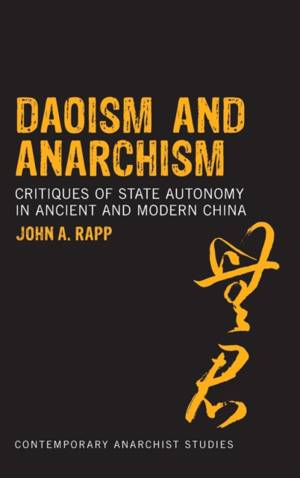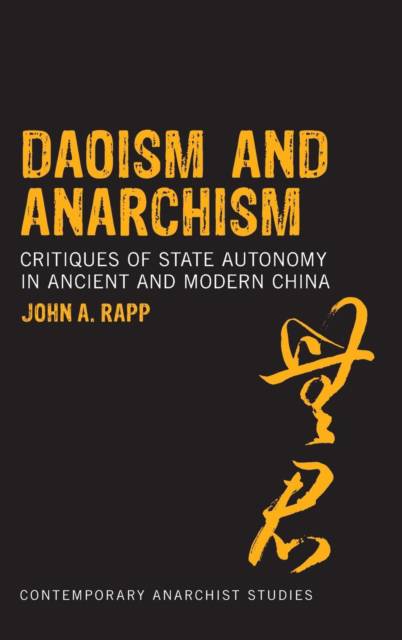
- Afhalen na 1 uur in een winkel met voorraad
- Gratis thuislevering in België vanaf € 30
- Ruim aanbod met 7 miljoen producten
- Afhalen na 1 uur in een winkel met voorraad
- Gratis thuislevering in België vanaf € 30
- Ruim aanbod met 7 miljoen producten
Zoeken
€ 339,45
+ 678 punten
Uitvoering
Omschrijving
This volume in the Contemporary Anarchist Studies series focuses on anti-statist critiques in ancient and modern China and demonstrates that China does not have an unchallenged authoritarian political culture.
Treating anarchism as a critique of centralized state power, the work first examines radical Daoist thought from the 4th century BCE to the 9th century CE and compares Daoist philosophers and poets to Western anarchist and utopian thinkers. This is followed by a survey of anarchist themes in dissident thought in the People's Republic of China from 1949 to the present. A concluding chapter discusses how Daoist anarchism can be applied to any anarchist-inspired radical critique today. This work not only challenges the usual ideas of the scope and nature of dissent in China, it also provides a unique comparison of ancient Chinese Daoist anarchism to Western anarchist. Featuring previously untranslated texts, such as the 9th century Buddhist anarchist tract, the Wunengzi, and essays from the PRC press, it will be an essential resource to anyone studying anarchism, Chinese political thought, political dissent, and political history.Specificaties
Betrokkenen
- Auteur(s):
- Uitgeverij:
Inhoud
- Aantal bladzijden:
- 240
- Taal:
- Engels
- Reeks:
Eigenschappen
- Productcode (EAN):
- 9781441132239
- Verschijningsdatum:
- 9/08/2012
- Uitvoering:
- Hardcover
- Formaat:
- Genaaid
- Afmetingen:
- 150 mm x 231 mm
- Gewicht:
- 703 g

Alleen bij Standaard Boekhandel
+ 678 punten op je klantenkaart van Standaard Boekhandel
Beoordelingen
We publiceren alleen reviews die voldoen aan de voorwaarden voor reviews. Bekijk onze voorwaarden voor reviews.







